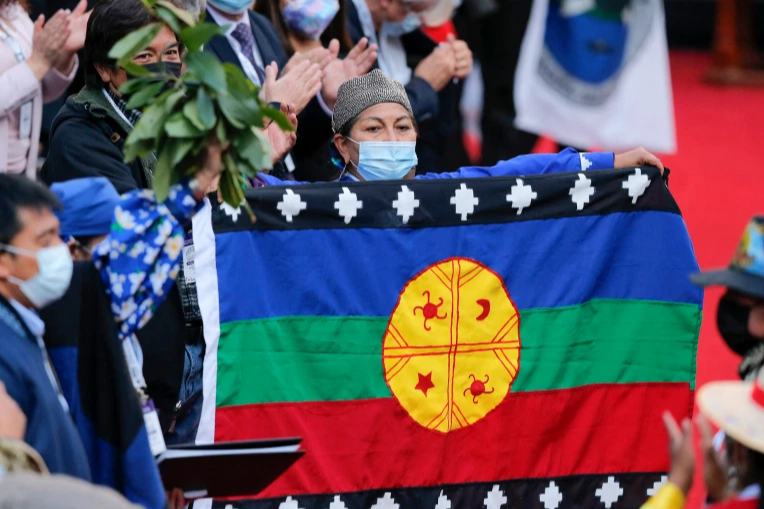
Indigenous academic and activist Elisa Loncon was elected as president of the Constituent Convention during the body's first session on July 4 in Santiago [Javier Torres/AFP]
Santiago de Chile, July 5 (RHC)-- The architects of Chile’s new constitution have chosen an Indigenous Mapuche woman to lead the process, as the country’s constitutional assembly was inaugurated on Sunday in the capital, Santiago de Chile.
University professor and activist for Mapuche educational and linguistic rights Elisa Loncon, a 58-year-old independent constituent, was picked by 96 of 155 delegates, including 17 Indigenous people, who make up the constitutional body.
The delegates were elected to draft a new text to replace Chile’s previous Magna Carta, which was produced during the dictatorship of Augusto Pinochet. “I am grateful for the support of the different coalitions that placed their trust and their dreams in the hands of the Mapuche nation, who voted for a Mapuche person, a woman, to change the history of this country,” Loncon said.
Fed up with the political status quo and urging systemic reforms, Chilean voters in May elected dozens of progressive, independent delegates to redraft the constitution – dealing a surprise blow to conservative candidates who failed to secure a third of the seats to veto any proposals.
“The idea of this 155-member assembly is that it tries to encompass and represent all the diverse elements of Chilean society,” Al Jazeera’s Daniel Schweimler reported from Buenos Aires, Argentina.
Two-thirds of the assembly must approve each article of the new constitution, he explained. The body will have nine months, with a possible three-month extension, to draft a new document that will be then put to a referendum.
“No group is big enough to veto those articles at the moment,” Schweimler said. “What we’re going to see over the next nine months to a year are a lot of negotiations; alliances, coalitions being formed, people trying to decide the best way forward.”
The previous version of Chile’s constitution, though amended over the past decades, was widely unpopular and viewed as a source of social inequality. The start of the inaugural session on Sunday was delayed for several hours after protesters and a special police unit clashed in the streets of Santiago near where the ceremony was held.
Demonstrations were also held in the nearby Plaza Italia, which emerged as the centre of mass social justice protests that broke out in 2019 and ultimately led the country to establish the constitutional assembly.
“I greatly hope that this process will help us build a country for all,” 47-year-old bank employee Carolina Vergara told the AFP news agency.

